Quinn Slobodian in New German Critique:
The 1990s were salad days for All Things German in North America. Scenes of cheerful anarchy as the wall fell were followed by the mass introspection of Schindler’s List (1993) and the wave of Holocaust memory. Weimar lived. The third section of Madonna’s 1992 Girlie Show tour was “Weimar Cabaret.” Sam Mendes directed a remake of Cabaret, starring Alan Cumming as a twee dead ringer for Otto Dix’s portrait of Sylvia von Harden. Tim Burton’s Edward Scissorhands (1990) introduced Caligari aesthetics to a younger generation with the protagonist’s haircut borrowed from the Cure’s Robert Smith, whose Wish went platinum in 1992. My college roommate bought two oversize posters that she adorned our house with, one of the Cure, the other of The Kiss by Gustav Klimt. A capstone was placed on the decade with the construction of the Neue Galerie on the Upper East Side, a moodier museum facing the Met, begun in 1996 and completed in 2001. Finally, you could LARP fin de siècle Vienna without leaving the New World. Newspapers were on sticks, and George Grosz paintings grimaced, mugged, and drooled from the gallery walls.
But the seeds of the fall were already on late-night television. When I stayed over at my grandmother’s, I could stay up late and watch Saturday Night Live. In a series of skits our Canadian hero, Mike Myers, hit the mystique of Germany with a laser-guided missile. In a recurring segment he was the host of a “West German television” show called Sprockets with a monkey called Klaus, a fake Kandinsky backdrop, and two authentic-looking Wassily chairs. He introduced Woody Harrelson in an asymmetrical haircut as the “irritant-in-residence at the Bremen Gallery of Modern Art.”1 There was a bit called Germany’s “Most Disturbing Home Videos” and a dream sequence in which Myers was seduced by a leather-clad and Nazi-capped dominatrix named Exclamation Point. At each segment’s end Myers’s barked announcement that it “was the time on Sprockets that we dance” triggered expressionless turtlenecked gyrations in caricature of Egon Schiele—and, by extension, of Iggy Pop and David Bowie.
More here.

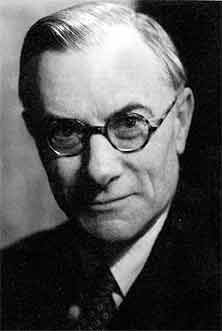
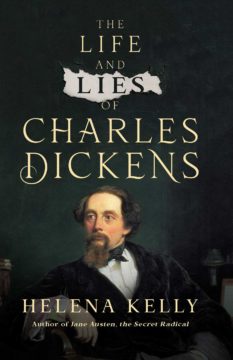 T
T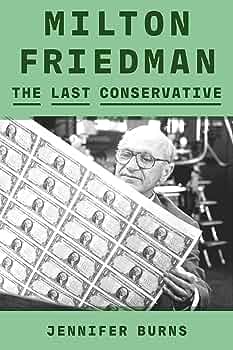 In writing her new biography of the Nobel Prize-winning economist Milton Friedman, known throughout his long life for his cheerful endorsement of deregulation and free markets, Jennifer Burns certainly had her work cut out for her. Reflecting on how controversial her subject was, she says that one of her goals was “to restore the fullness of Friedman’s thought to his public image.” She depicts Friedman, who
In writing her new biography of the Nobel Prize-winning economist Milton Friedman, known throughout his long life for his cheerful endorsement of deregulation and free markets, Jennifer Burns certainly had her work cut out for her. Reflecting on how controversial her subject was, she says that one of her goals was “to restore the fullness of Friedman’s thought to his public image.” She depicts Friedman, who 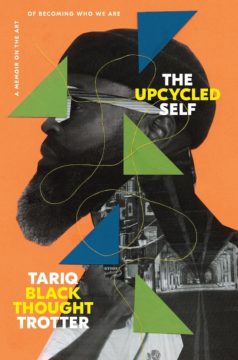 Across three decades as philosophical frontman for the Roots, Tariq Trotter (a.k.a. Black Thought) has composed such an expansive catalogue of keen social commentary and gritty introspection that his verse constitutes a biography in itself. With his memoir, “
Across three decades as philosophical frontman for the Roots, Tariq Trotter (a.k.a. Black Thought) has composed such an expansive catalogue of keen social commentary and gritty introspection that his verse constitutes a biography in itself. With his memoir, “ GRIEF, MEMORY, LOVE. I had not planned for this trinity of themes to become the substratum of my pilgrimage. Yet six months on, to arrive in Iraq in the nights leading up to Ashura — the climactic 10th day in a ritual period of mourning for the world’s more than 150 million Shiite Muslims — was to be confronted by a grief so fresh that the event that inspired it, the martyrdom of the Prophet Muhammad’s grandson Hussein in 680, might have occurred yesterday.
GRIEF, MEMORY, LOVE. I had not planned for this trinity of themes to become the substratum of my pilgrimage. Yet six months on, to arrive in Iraq in the nights leading up to Ashura — the climactic 10th day in a ritual period of mourning for the world’s more than 150 million Shiite Muslims — was to be confronted by a grief so fresh that the event that inspired it, the martyrdom of the Prophet Muhammad’s grandson Hussein in 680, might have occurred yesterday.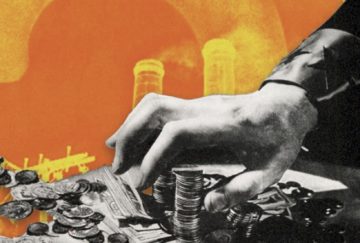 Americans of the left, right, and center are increasingly hostile to big corporations—but not for the same reasons. Many on the left are deeply uncomfortable with capitalism as such—that is to say, with corporate profit. In contrast, the populist right has turned against “woke” corporations that support transgender ideology, affirmative action, and other public policies conservatives oppose. But this is an objection not to corporate profit but to particular exercises of corporate power. Finally, as a response to US deindustrialization and the rise of China’s industrial and military power, there is growing bipartisan support for economic nationalism and industrial policy, particularly among national security experts in both parties. Here the criticism involves corporate purpose: Should American corporations, by investing or manufacturing in China, build up the economy of a country that is increasingly seen as America’s major rival in the world?
Americans of the left, right, and center are increasingly hostile to big corporations—but not for the same reasons. Many on the left are deeply uncomfortable with capitalism as such—that is to say, with corporate profit. In contrast, the populist right has turned against “woke” corporations that support transgender ideology, affirmative action, and other public policies conservatives oppose. But this is an objection not to corporate profit but to particular exercises of corporate power. Finally, as a response to US deindustrialization and the rise of China’s industrial and military power, there is growing bipartisan support for economic nationalism and industrial policy, particularly among national security experts in both parties. Here the criticism involves corporate purpose: Should American corporations, by investing or manufacturing in China, build up the economy of a country that is increasingly seen as America’s major rival in the world?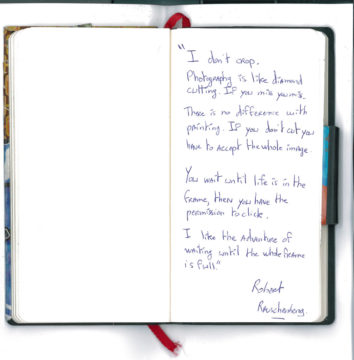 From 1965 to 1970, Robert Rauschenberg made the building his personal and professional HQ, a place to live, work, and (if the story be true) provide surplus shellfish to whomever asked. “I think the house satisfied a mix of aesthetic necessities and social desires for him,” says Kathy Halbreich, lately the executive director of and now an adviser to the Robert Rauschenberg Foundation. Since 1970, when the artist departed for roomier digs in Captiva, Florida, his eponymous organization has kept its offices in the building, remaining there even after Rauschenberg himself died in 2008 and well after bohemia had largely decamped from the neighborhood today known as NoHo. Tucked between a parking lot and the home of the New York University bursar, the five-story, redbrick, round-arch-style structure hides in plain sight, its anonymity somewhat abetted by the foundation’s low profile. “We’ve never really wanted to trumpet our location,” says Halbreich.
From 1965 to 1970, Robert Rauschenberg made the building his personal and professional HQ, a place to live, work, and (if the story be true) provide surplus shellfish to whomever asked. “I think the house satisfied a mix of aesthetic necessities and social desires for him,” says Kathy Halbreich, lately the executive director of and now an adviser to the Robert Rauschenberg Foundation. Since 1970, when the artist departed for roomier digs in Captiva, Florida, his eponymous organization has kept its offices in the building, remaining there even after Rauschenberg himself died in 2008 and well after bohemia had largely decamped from the neighborhood today known as NoHo. Tucked between a parking lot and the home of the New York University bursar, the five-story, redbrick, round-arch-style structure hides in plain sight, its anonymity somewhat abetted by the foundation’s low profile. “We’ve never really wanted to trumpet our location,” says Halbreich. Monkeys that “dance” in street shows in Pakistan have high levels of stress hormones, abnormal behaviour and poor health – but stopping such shows would create a welfare crisis for trainers and their families, researchers say.
Monkeys that “dance” in street shows in Pakistan have high levels of stress hormones, abnormal behaviour and poor health – but stopping such shows would create a welfare crisis for trainers and their families, researchers say.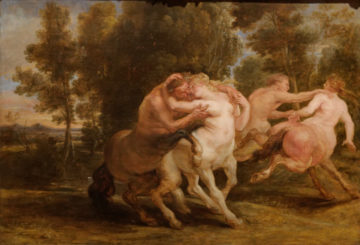 Peter Paul Rubens, known in his lifetime as “the prince of painters and the painter of princes”, is not, perhaps, a figure sympathetic to the modern age. He was by all accounts a charming man with graceful manners who could speak Latin, Dutch, Italian, Spanish, French and German; he was knighted by both Philip IV of Spain and Charles I of England; and employed as a diplomat and spy as well as a painter; he was a man as comfortable in Europe’s courts as in his studio. As such, he is just a tad too smooth when contemporary tastes run to artists with a bit of grit in the oyster.
Peter Paul Rubens, known in his lifetime as “the prince of painters and the painter of princes”, is not, perhaps, a figure sympathetic to the modern age. He was by all accounts a charming man with graceful manners who could speak Latin, Dutch, Italian, Spanish, French and German; he was knighted by both Philip IV of Spain and Charles I of England; and employed as a diplomat and spy as well as a painter; he was a man as comfortable in Europe’s courts as in his studio. As such, he is just a tad too smooth when contemporary tastes run to artists with a bit of grit in the oyster.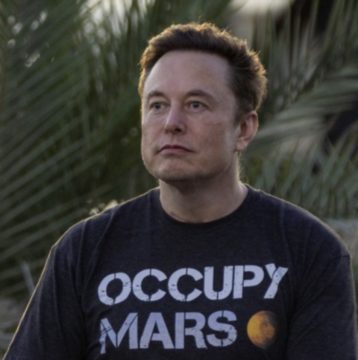 For its first two-thirds, Walter Isaacson’s mammoth biography of Elon Musk is an epic romance, like The Lord of the Rings (a Musk favorite) or the Arthurian legends. It portrays the hero and his comrades overcoming seemingly insurmountable obstacles through daring, determination, cleverness, and skill, all in the pursuit of noble goals.
For its first two-thirds, Walter Isaacson’s mammoth biography of Elon Musk is an epic romance, like The Lord of the Rings (a Musk favorite) or the Arthurian legends. It portrays the hero and his comrades overcoming seemingly insurmountable obstacles through daring, determination, cleverness, and skill, all in the pursuit of noble goals. Although one of the loneliest moments of my life happened more than
Although one of the loneliest moments of my life happened more than  Why fingers shrivel up in water is an age-old question that every child asks at bath time, but the answer may come as a surprise. “The whole body doesn’t wrinkle, and that says a lot,” said
Why fingers shrivel up in water is an age-old question that every child asks at bath time, but the answer may come as a surprise. “The whole body doesn’t wrinkle, and that says a lot,” said 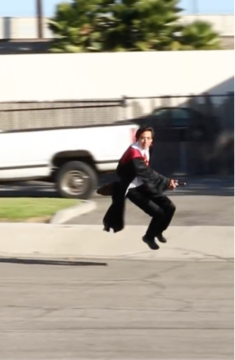 First, watch this
First, watch this